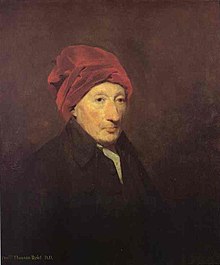|
Agent causation Agent causation, or Agent causality, is a category of determination in metaphysics, where a being who is not an event—namely an agent—can cause events (particularly the agent's own actions). Agent causation contrasts with event causation, which occurs when an event causes another event.[1][2] Whether agent causation as a concept is logically sound is itself a topic of philosophical debate.[1] Defenders of this theory include Thomas Reid and Roderick Chisholm. Reid believed that agents are the only beings who have a will, and considered having a will to be a necessary condition of being considered the cause of an event.[3] ProponentsThomas Reid is credited as the founder of the theory of agent causation.[4] In Essays on the Active Powers of Man (1788), Reid described an agent as one who has "power over the determinations of his own will."[5] He held that agents are the only beings who have a will, and considered having a will to be a necessary condition of being considered the cause of an event.[3] Agent causation has been adopted by both compatibilists and incompatibilists alike.[1] Defending a compatibilist interpretation, Ned Markosian proposed a situation in which a person's actions, caused by nothing other than their own agency, have shaped their moral character over their lifetime to compel them to always do the right thing.[6] Roderick Chisholm's incompatibilist view contends that a free action is an action that originates from within the agent alone, not as the result of a prior event.[7] While still subject to debate, agent causation is generally considered to align with incompatibilist theory.[1] Libertarians have offered agent causation as a defense of their incompatibilist belief that only undetermined, uncaused actions are free.[8] One objection to this belief argues that an undetermined action is one that occurs at random, and freedom does not follow from random, "by chance" action.[9] Agent causation counter-proposes the idea that an action need not be classified as either determined or random, but rather can occur under an agent's control.[10] See alsoReferences
|
Portal di Ensiklopedia Dunia